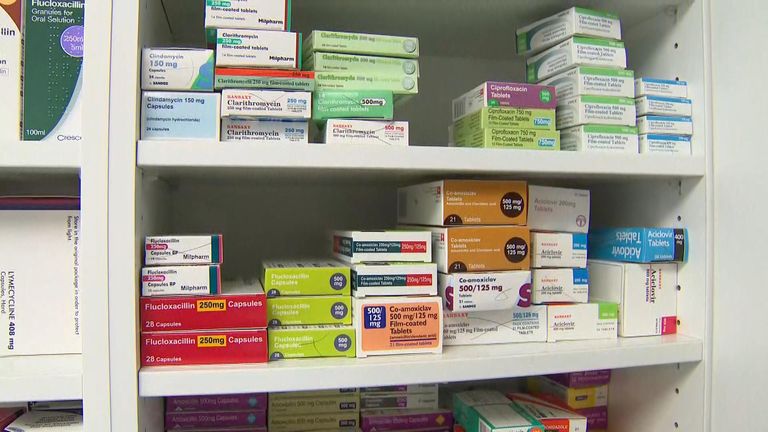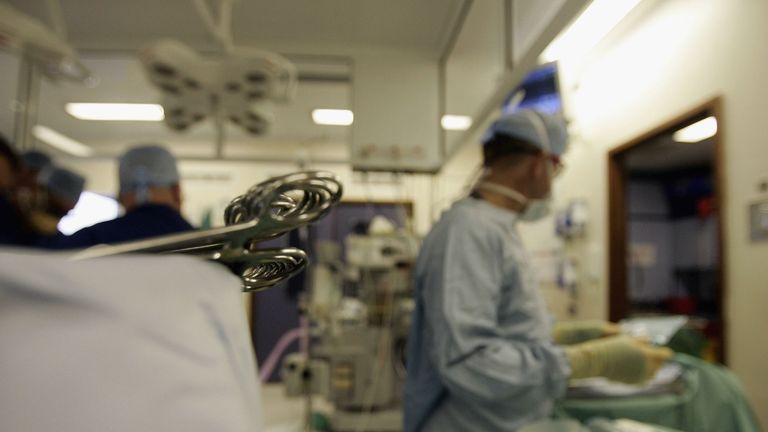Antibiotic resistance could kill us before climate change, warns country's top medical officer
At least 10 million lives a year could be lost if the urgent problem is not tackled, a top government adviser warns.
Friday 30 August 2019 06:55, UK
Antibiotic resistance is a major threat that "could kill us before climate change does", the country's chief medical officer has told Sky News.
In an exclusive interview, Professor Dame Sally Davies, who is also chief medical adviser to the UK government, told Sky News "at least 10 million could die every year if we don't get on top of this" - claiming more lives than currently both cancer and diabetes.
As the UK seeks to forge its own post-Brexit international trade deals, Dame Sally expressed serious concerns about countries outside of the EU who use antibiotics in animal farming "at dramatically high levels".
She argued the UK "should not be importing beef or other animals where antibiotics have been misused and growth promotion is a misuse in my book because it leads to problems across the world".
She added: "Fish farming is quite horrible in many places - just tipping antibiotics into the feed."
During her nine years as the first female chief medical officer for England, Dame Sally has been a trailblazer in raising the profile of the threat posed by antimicrobial resistance (AMR).
The overuse of the drugs, vital to fighting infection, has given rise to so-called superbugs against which conventional medicines are ineffective.
Urging the need for progress to be made, Dame Sally said: "Talking about it is the first step - I want action, and that is taking time."
Comparing the severity of the threat to global warming, she said: "We humans are doing it to ourselves, but it could kill us before climate change does. It is a very important area and we are under-investing in sorting it out."
Stressing the importance of tackling the issue, she said: "Antibiotics underpin modern medicine - you can't have gut surgery, replacement hips, all sorts of surgery without risking infection."
However, the overuse of antibiotics not just in humans but in animals could render them ineffective, she said: "We risk going back to that pre-antibiotic era."
Currently, around 70% of the world's antibiotics are given to farm animals with intensive farming expanding due to a growing global demand for meat.
The EU ban on American beef imports is in part due to the use of growth hormones.
Brussels has introduced regulations on the use of antibiotics in farming and Dame Sally is proud of the progress made in the UK over the past five years - highlighting a 40% cut in antibiotic use in the animal sector and a 91% drop in its use in chickens.
Asked by Sky News if she was confident post-Brexit trade deals would maintain those high standards, she said: "There's always a balance in a trade relationship between economics and standards and this government has given a commitment to translate the European law... and stick to the standards we have, so it should all be all right."
Dame Sally is due to step down from her role just ahead of the UK's planned departure from the EU.
She told Sky News the government had spent two years working with pharmaceutical companies to protect against medicine shortages due to Brexit, but said supply problems would not be ruled out.
She added: "No one can be entirely confident and I am on record as saying we can't guarantee there will be no deaths."
While Dame Sally is leaving her post at the end of September, her work in the field will continue, as she becomes a special envoy on antimicrobial resistance.





